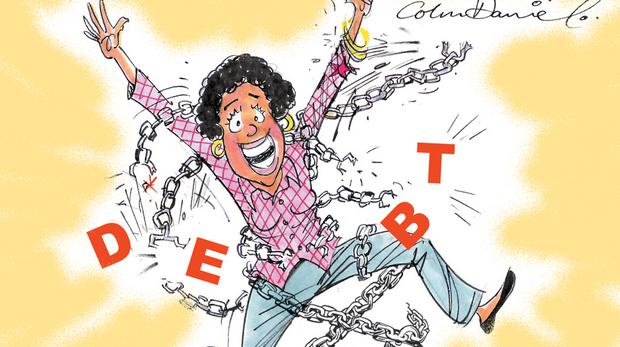
Many people are struggling to keep up with the monthly repayments on their mortgage bonds, cars, credit cards and loans. The first sign that you are over-indebted is when you fall behind on your repayments.
If you creditors’ attorneys come after you, you will have to pay legal costs in addition to your original debt and the interest you owe. The result may be more debt, a debt judgment against you, and a poor credit rating.
The National Credit Act was introduced to protect over-indebted South Africans from legal action. It provides consumers with a mechanism whereby they can pay off their debts in an affordable way, while protecting their possessions.
A debt counsellor will restructure your debt and negotiate a lower repayment with your creditors, resulting in a fixed monthly amount that covers all your credit payments, and you are relieved of being harassed by your creditors.
If you opt for debt counselling, you will have more money each month. This is because the debt counsellor will help you to work out a budget that suits your lifestyle and expenses. In some cases, debt counselling can reduce the amount you pay your creditors by up to 30% a month.
If you pay your reduced monthly payments, as agreed by you and your debt counsellor, your possessions, such as your house and car, will be protected while you are repaying your debt.
Debt counselling is the quickest way to regain your financial freedom with a clean credit record.
Your debt counsellor should always treat your financial affairs with the utmost confidentiality.
Four things you should know about debt counselling
1. Do your homework and find a reputable debt counsellor. Don’t be fooled by fly-by-night businesses that claim to be experts. Find someone who has been in the industry for a few years and has a proven track record.
2. At your first meeting with your debt counsellor, he or she will look at your financial status. Your counsellor will look at your bank statements, examine your income and expenses, and draw up a realistic budget. He or she will negotiate new interest rates with your creditors, and you will start paying a reduced payment from your next salary.
3. The reduced payments will be worked out on a fixed amount and fee every month. It is extremely important that you keep up to date with the new payment terms, to avoid a criminal conviction or debt judgment. It is important to note that the “initial debt repayment plan” setting out the reduced monthly payments is sent as a proposal to your creditors. Once they accept it, your debt counsellor will ratify the arrangement with a court order.
4. Don’t miss a payment. Once the payment plan becomes a court order, it takes only one missed or late payment for your creditors to be able to take legal action against you.
